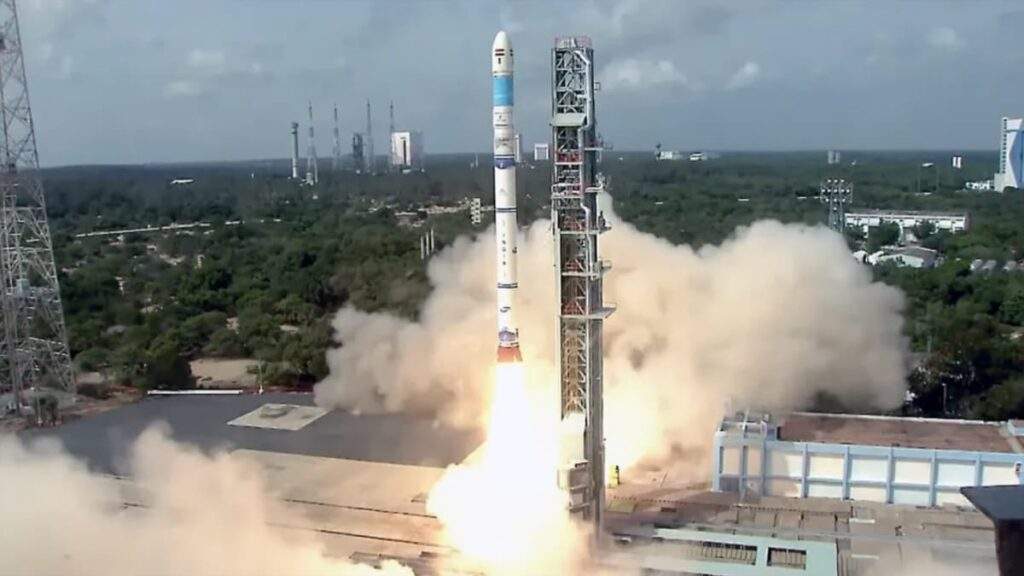India’s Space Agency Scores Another Success with EOS-08 Satellite Launch
In a major milestone for the Indian space program, the Indian Space Research Organisation (ISRO) successfully launched the EOS-08 Earth-observing satellite on Friday. The satellite was carried aboard the Small Satellite Launch Vehicle (SSLV) from the Satish Dhawan Space Centre at 9:17am IST on August 16. This marks the third mission for the SSLV, a relatively new addition to India’s fleet of rockets designed specifically for deploying small satellites into low Earth orbit.
The SSLV’s journey has been marked by both success and setbacks. Its debut flight in August 2022 failed when the rocket deployed the observing satellite and a student-built cubesat into incorrect orbits, leading to their premature return to Earth. However, ISRO quickly addressed these issues, and the SSLV’s second flight in February 2023 was a success, with the rocket deploying three payloads into their designated orbits.
In its third mission, the SSLV carried the EOS-08 satellite, a 175.5 kg spacecraft, into a 475 km circular orbit. EOS-08 is equipped with the Electro-Optical Infrared (EOIR) payload and the Global Navigation Satellite System-Reflectometry (GNSS-R) payload. The EOIR is designed to provide vital infrared data for various applications, including satellite-based surveillance, disaster monitoring, and environmental observation. Meanwhile, the GNSS-R will demonstrate innovative techniques for detecting floods, assessing soil moisture, and analyzing oceanic winds using reflected satellite navigation signals.
EOS-08 is expected to operate for one year, during which it will deliver essential data to support a range of Earth-observation applications. Additionally, it carries an ultraviolet-light dosimeter to help characterize space radiation, an important factor for India’s upcoming Gaganyaan mission, the country’s first crewed spaceflight scheduled for 2025. This mission not only contributes to immediate scientific objectives but also lays the groundwork for future advancements in satellite technology and space exploration, reinforcing India’s growing role in global space initiatives.
